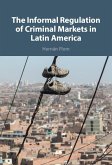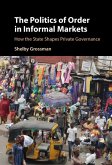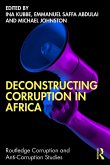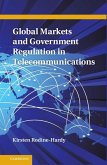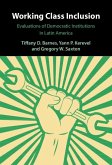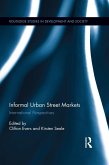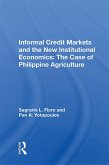This book explains how states informally regulate drug markets in Latin America. It shows how and why state actors, specifically police and politicians, confront, negotiate with, or protect drug dealers to extract illicit rents or prevent criminal violence. The book highlights how, in countries with weak institutions, police act as interlocutors between criminals and politicians. It shows that whether and how politicians control their police forces explains the prevalence of different informal regulatory arrangements to control drug markets. Using detailed case studies built on 180 interviews in four cities in Argentina and Brazil, the book reconstructs how these informal regulatory arrangements emerged and changed over time.
Dieser Download kann aus rechtlichen Gründen nur mit Rechnungsadresse in A, B, BG, CY, CZ, D, DK, EW, E, FIN, F, GR, HR, H, IRL, I, LT, L, LR, M, NL, PL, P, R, S, SLO, SK ausgeliefert werden.



